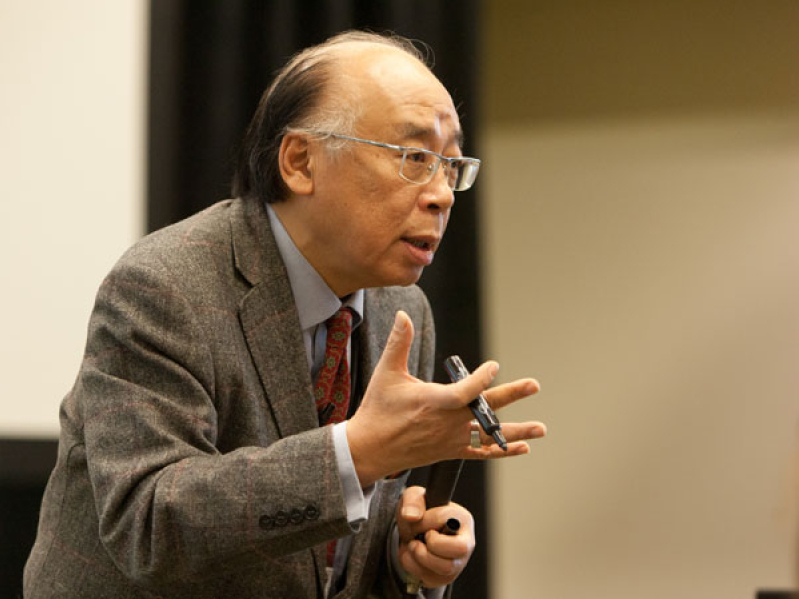
Asian Outreach honorary president Dr. David Wang was invited by Missions Fest Vancouver as its keynote speaker. In one of its seminars, he described China’s churches as the continuation of the book of Acts, where they are growing continuously under the power and guidance of the Holy Spirit. Yet, what is the actual outlook of the church in China today?
Wang said that China’s church today is a reflection of China’s society today, where both are undergoing an enormous and rapid transformation. He explained the five major trends of church in China today, and pointed out how these trends have prepared the China’s church to engage in world missions.
Urbanization
Wang said that when Mao Zedong died, 79 percent of the Chinese lived as farmers. Following Deng Xiao Ping’s Economic Reform, industrial growth brought about a large-scale urbanization. A statistic revealed that by 2015 over half of China’s population will be living in cities. The realistic way is not to relocate those living in farm villages to the cities, but it is to extend the railroads and freeways to where they are. At that time, China will have the world’s longest railroad system. With the change in the social environment, the village churches will become urbanized, promoting the connection between farm villages and cities.
Increase in White Collar/Middle Class
Wang introduced that China has undergone the baptism of Cultural Revolution and Economic Reform, and has already leaped from a farm-centered economy to a pioneer in information technology; it currently has more internet and cellphone users than any country in the world. The majority of the Chinese no longer controls machines or engages in manual labors, but has taken up white collar jobs that require more use of the brain. A new generation of middle class has appeared in the society, and they have inherited the middle class tradition – to provide their children with the highest form of education. In Beijing, the make-up of the churches used to be mostly seniors, but it has changed to be mostly recent college graduates. From this, China churches today have more middle-class and white collars.
Explosion in Population and Economic Growth
Wang laughed and said that God must really love China, so that’s why he made so many Chinese. According to the current growth rate, there is an increase of one million people in every three weeks. Speaking of economics, there isn’t any country in the world that has a growth rate comparable to that of China’s. China is heavily investing in Africa, Middle East, and South East Asia, and even Europe’s economy is depended upon China for help. Even for Hong Kong, there are 27 million tourists from mainland that visited last year, and their spending kept its economy.
Reminiscing of the past centuries, the countries with the greatest contributions toward world missions, England and United States, have once been at the forefront in the growth of their population and economy. In the 18th century, Britain created a lot of manpower and wealth because of the industrial revolution, but after World War I and World War II, Europe’s population were greatly decimated, and England was no longer glorious. Meanwhile, United States participated in the production of weapons and firearms, which created a lot of manpower and stimulated economic growth; as a result, she rose to become the world’s superpower.
Spiritual Revival
Wang said that in western church history, there were great revivalists such as Charles Spurgeon, George Whitefield, and Wesley Brothers. Although China didn’t have any famous pastors, they did experience a great spiritual revival.
He gave an example of a house church pastor who he knows and had been imprisoned for 19 years. After being released from Prison, he immediately returned to the church where he used to minister at, thinking that the church had already closed down. To his surprise, the brothers and sisters are still there. They said to the pastor that although you were captured and imprisoned, we still have the Holy Spirit, and the Holy Spirit has never left us.
Spirit of Adventure
Wang said that the spirit of adventure is a type of wish to want to change the world. In the last couple of centuries, British and Americans have carried with them a great spirit of adventure, going to the world, challenging the world; and today is the Chinese people’s turn.
Wang pointed out that the spirit of adventure in Chinese businessmen is undeniable. While many businessmen do not understand a word of English, they would carry a luggage full of product samples – whether it is shoes or flash lights – and would travel to all parts of the world – Dubai, Zimbabwe, Rome, New York. Especially those from Wenzhou, a province known to be the “Jerusalem” in china, for there are many Christian businessmen. These Christian businessmen from Wenzhou are very shrewd in their business management, and would support the local church development financially, building large churches and rapidly increasing the number of those being saved.
The Hong Kong-based scholar reminded that whether one is in the marketplace, career place, or professional fields, he must strive to gain success in his career in order to effective reveal the spiritual influence at the same time.
Conclusion
Urbanization, white-collar/middle class formation, explosion of population and economic growth, spiritual revival, and spirit of adventure – putting together these five items actually forms a proven mission equation. In the last couple of centuries, these factors have all appeared in the British and American churches which have made significant contributions toward world missions. Today’s church in China has been preparing to walk on the road of world missions.






